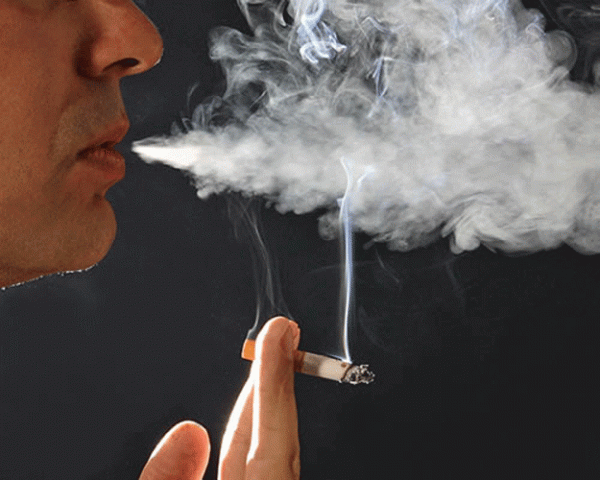Heavy drinking may make it harder to quit smoking
Researchers studied 22 white male smokers at an inpatient alcohol addiction treatment centre in Poland

When nicotine metabolism is higher, people tend to have a harder time quitting smoking, said Noah R Gubner, lead author of the Centre for tobacco Control Research and Education at the University of California. PHOTO: FILE
“We didn’t measure what was happening when people were drinking, but after they stopped, their elevated rate of nicotine metabolism slowly subsided,” said lead author Noah R Gubner of the Centre for tobacco Control Research and Education at the University of California, San Francisco.
When nicotine metabolism is higher, people tend to have a harder time quitting smoking, Gubner told Reuters Health by phone.
In health warning showdown, tobacco industry turns to India's top court
If two people are trying to quit smoking and using a nicotine patch, the person with a faster nicotine metabolism will clear the chemical from their body faster and feel the desire to smoke again sooner, he said.
In 2011 and 2012, the researchers studied 22 white male smokers at an inpatient alcohol addiction treatment centre in Poland. They analysed participants' urine samples to gauge nicotine levels and metabolism at one, four and seven weeks after detoxing from alcohol.
The speed of nicotine processing declined by about half over the seven-week period, even though the men did not change how many cigarettes they were smoking per day.
The researchers write in Drug and Alcohol Dependence that heavy alcohol use may trigger the enzyme in the body primarily responsible for metabolising nicotine. And faster nicotine processing could explain the poor rates of quitting smoking among people who are alcohol dependent.
'Grown in Washington': the marijuana farms near US power hub
The results might be useful for helping recovering alcoholics quit smoking, they add. More research is needed to know if nicotine replacement therapy is more effective after people stop heavy drinking, however.
Quitting alcohol and quitting smoking are complicated undertakings, and nicotine and alcohol could have some synergistic effects on reward and pleasure, Gubner said. Also, heavy drinking can affect decision-making, including the decision to smoke less or not at all.



















COMMENTS
Comments are moderated and generally will be posted if they are on-topic and not abusive.
For more information, please see our Comments FAQ